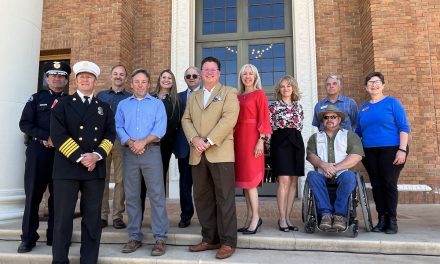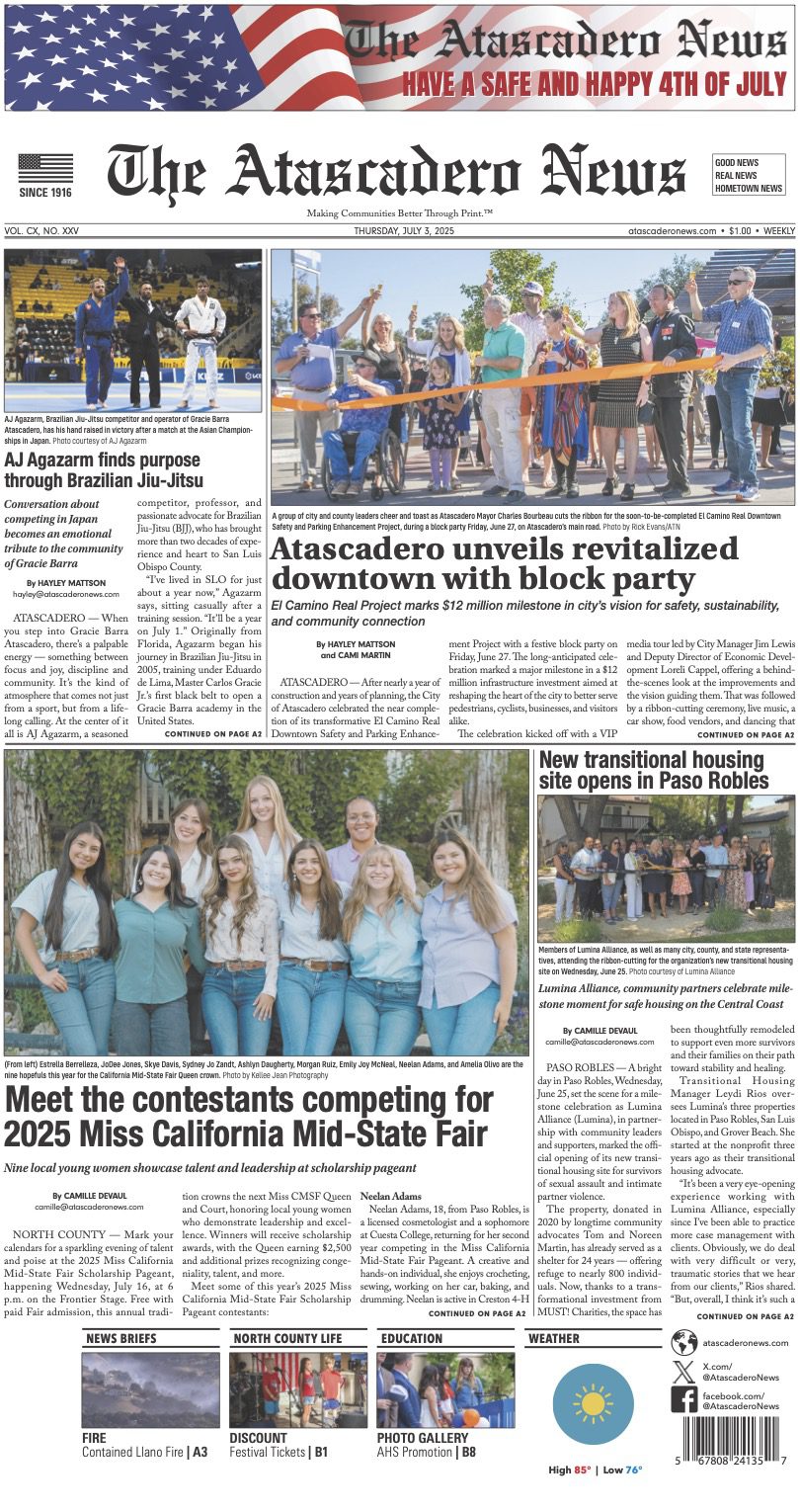ATASCADERO — Atascadero Police Chief Jerel Haley announced that the Atascadero Police Department would be reinstituting a special enforcement detective to help work with the transient population via his address to City Council in the Aug. 11 session’s opening minutes.
The Atascadero News reached out to the Atascadero Police Department to inquire about the new position and how it has run after its first full month in operation.
APD has placed Detective Steve Stucky, an eight-year veteran of the force, on full-time in the new special enforcement unit, which has been vacant since the department lost an officer to the San Luis Obispo’s Sheriff’s Department about a year ago.
Stucky will work with the Community Action Team (CAT) when available and assist with the transient population while his partner will work narcotics.
“Right now, we are focusing more on narrowing down what the route of the problem is and how we can best address the influx of the transient population,” Stucky said of his position. “Versus just going out there and trying to hammer them with citations and that kind of thing. Could we do that? Sure, but it is not going to solve any problems. The hard part is actually finding a solution, and that is going to take a lot of time.”
In its first month in the position, the new special enforcement unit has worked slowly as they try to foster and strengthen relationships within the community they are trying to help. Once a week, the detective will be accompanied by mental health professional Brooke Jordan, who works with homeless people and helps them acquire resources and services they might need.
“I tend to take a backseat in those contacts,” Stucky pointed out. “They [transients] don’t tend to like to speak openly around me. I make sure to let them know that I am not there in an enforcement capacity.”
In Police Chief Haley’s address to the City Council, he mentioned the police force, “Taking action in 15 different instances,” which Lt. Robert Molle clarified in the interview, stating those were made by control for criminal activity and not the special enforcement unit.
When at full speed, the program has worked in years past, but it is off to a bit of a slow start as Jordan, who splits her time with Atascadero and Paso Robles, was away for two weeks due to pre-approved time off.
“They have helped people to this point. We haven’t got anyone into housing yet, but they have done a lot of management of people.” Jeffery Wilshusen, Detective Sergeant over the Special Enforcement Unit, said. “They will keep a calendar, Brooke [Jordan] does an amazing job of that. Some of our homeless population have a mental health component to and they will actually go out and find people on the days of their doctor’s appointments and will drive them to their doctor’s appointment. They will drive them to social services to get their check for the month, so that is kind of the bottom layer that we start with. Building up that trust with them and getting them to services that are essential to them and that builds that bond so that when they are ready, we can accept them and start inserting them into more services.”
The Atascadero Police Department now has a team in place working with transient people in the community but has also asked for the public’s help reporting criminal behavior, panhandling, or loitering — while putting their name behind it.
In a downtown safety meeting held two weeks ago, the city and APD addressed the same topic and again asked citizens to call the 805-461-5051 non-emergency line and leave a name near the complaint.
“The reason why we want our citizens to call us and put their name on the report to where we can actually take action is actually the end game,” Wilshusen said. “… We really rely on the justice system. We can use that arm of it as leverage to kind of point them in the right direction of getting themselves a better life.”
The newly instated position will work with resources like El Camino Homeless Organization (ECHO) and the Community Action Partnership on San Luis Obispo (CAPSLO) as they have in the past, with the end goal in finding housing.
“If we can get people into housing, it is well worth it,” Wilshusen said. “When we had the program up and running last year, we were able to house quite a few people, and they were really able to turn their lives around because of it.”













